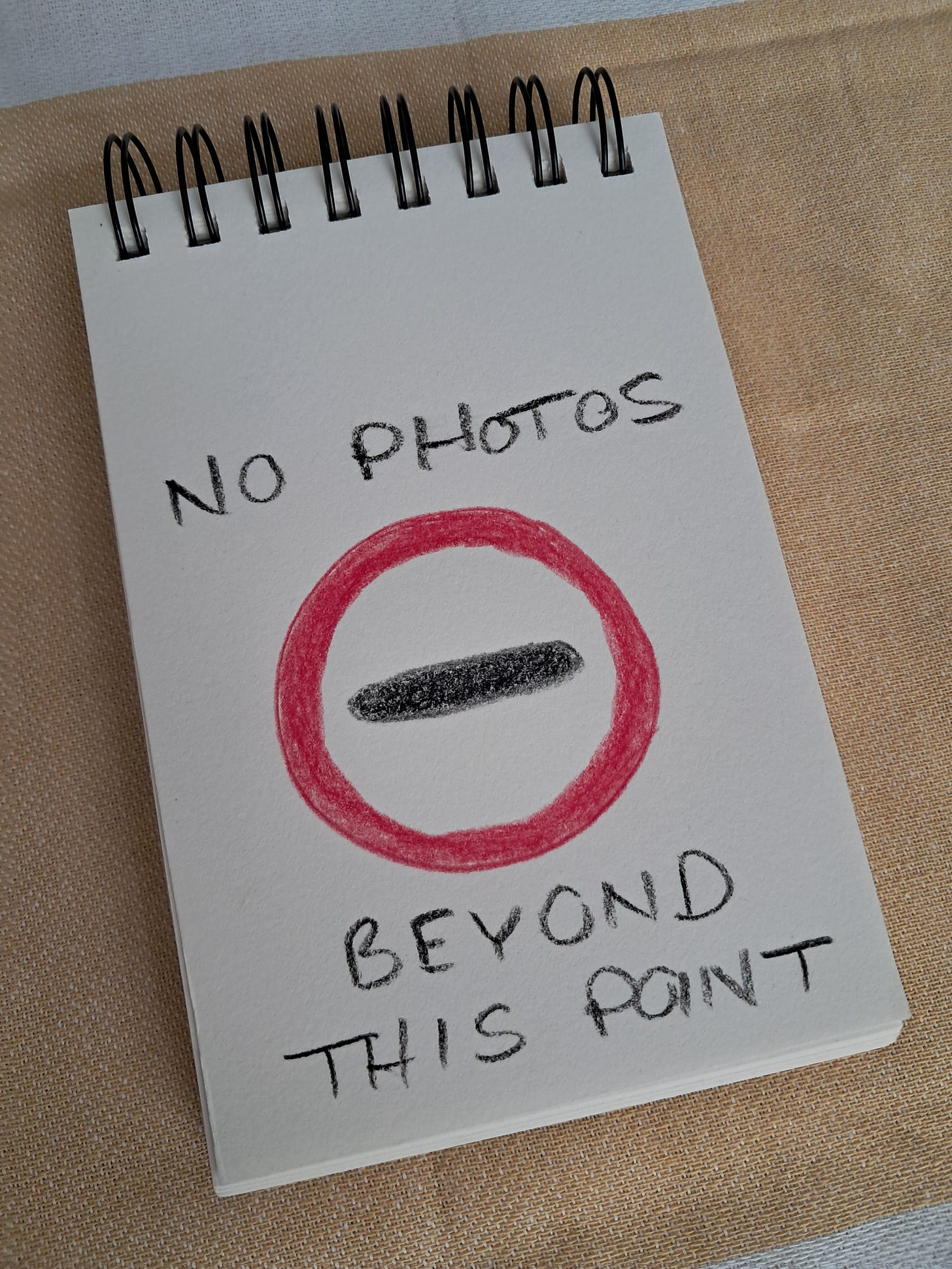Guns and threshold protocols
This is an article about borders and fragile permissions.
When I was a child, Europe was full of borders. They were not abstract lines on a map but heavy, deliberate thresholds. The most serious of places. Even the boring ones - the crossing into Austria, where the language barely changed and the fields on either side looked the same - demanded patience and submission, and more so as we went south and east. Long lines of cars, windows rolled down, officials in uniform pacing between vehicles, passports collected, checked, stamped. Guns hanging at their sides, a visible sign of the authority they carried.
The guns puzzled me. If they weren’t meant to be fired, why were they there, so casual and ready? I could never quite believe they were only ornamental, that no one ever lost their temper, that a bored border guard never squeezed the trigger just to see what it felt like. I was free to study the border guards’ faces, their uniforms and guns at leisure through my dirty car window because they hardly ever looked at me. Sometimes they did, and sometimes they even smiled, but only for a second.
This week, I’ll cross the border into Serbia on my way to BalCCon 2k25. I’ll stand in front of a small glass booth, offer my passport to the man inside. I won’t see if he’s wearing a gun. I’ll try to arrange my face into something that is both friendly and identical to the photo in my passport - two states that, in my experience, are nearly incompatible.
And I’ll wonder, fleetingly, about the border guards of yesterday. Maybe the official I’ll be handing my passport to is the son of a guard I saw decades ago through a car window. Maybe, while I was sitting in the back seat of a red Opel, listening to stories on my Walkman, he was at home, lying prone on the carpet in front of the TV (as we 80s kids were wont to do, before devices became light and portable), watching cartoons. Waiting for his father to return.
Maybe he grew up hearing stories about smugglers caught at the border, or bank robbers intercepted in the final kilometers before escape. Did his father lock his gun at the police station or at home? Maybe he brought it home, and the boy waiting for him looked at it, repelled and fascinated. Or maybe the boy never saw a gun, imagined his father having a regular desk job, stamping passports in a cosy office, smoking cigarettes and calling out jokes to colleagues passing in the hallway, seeing himself in the same place one day, as a grown man.
For me, the border was a strange menace that broke the monotony of travel - a sudden spike of both excitement and anxiety on the endless ribbon of highway. A place where grown-ups spoke to each other in serious, sometimes sharp tones, and where your possessions could suddenly become incriminating. Where I wondered if my Walkman cassettes, covered in snack crumbs, would suddenly turn into contraband.

Today, borders within much of Europe have softened for someone carrying a German passport. Often, the only sign of crossing is a faded checkpoint building by the roadside or a highway sign welcoming you to another country. And yet, the sensation of being searched, scrutinized, conditionally allowed hasn’t gone away. It has just shifted, often online.
More and more often, digital platforms ask for my ID. Official documents, facial scans, proof of existence before I can post, pay, or simply keep an account open. Each time, I feel a flicker of that childhood anxiety:
Will they find a reason to refuse me entry? What invisible rule have I broken?
And while I can pass most physical and digital checkpoints with ease, this is not true for everyone. The privileges of certain passports and certain online identities still dictate how easily you can move, speak, build a presence. I remember Greta, a Wikipedia Albania volunteer I met at one of the early BalCCons. To attend a conference in Serbia, she had to plan a long detour around Kosovo, because a single border stamp - the wrong mark on paper - could have barred her from entry altogether.
In a few days, when the guard in the booth stamps my passport and waves me through, I’ll drive on to Novi Sad and talk about memory, technology, and systems that dream about us. But I know that in that brief moment at the border, as my identity is inspected, I’ll feel the old unease return.
Because borders - whether on maps, in server logs, or in the quiet dread of a child staring at a gun on a stranger’s hip - have a way of reminding you that access is never guaranteed.

